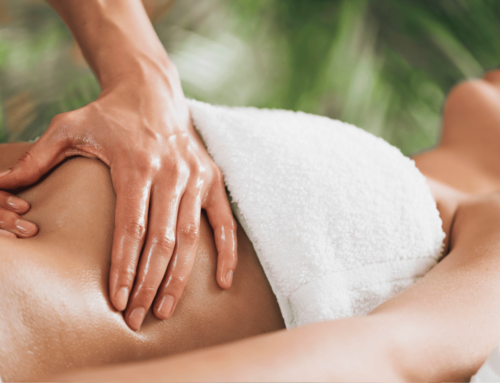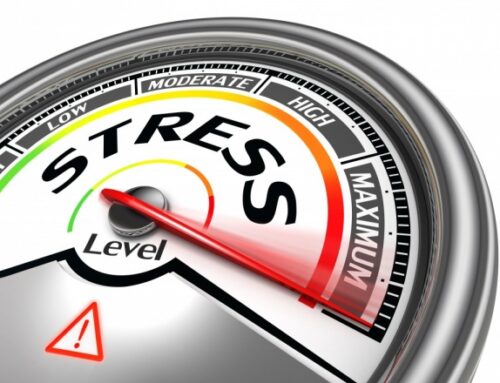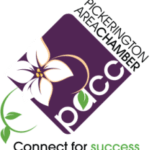FAQ #5- Relax or Talk During A Massage?
When you go in for a massage session, should you talk to your massage therapist? Some people feel like it’s more relaxing to chat during the massage treatment, while others find that it disrupts their massage experience. Ultimately, it’s up to you, the client – but here are some things to keep in mind for a therapeutic massage.
How do you feel about talking during your massage session?
Although some people prefer to talk throughout the massage treatment, you don’t feel like you have to have a conversation with the massage therapists. After all, you’re having a treatment, not at a cocktail party!
Feel free to close your eyes and relax, which is what most people do to achieve overall relaxation.
Deep tissue massage and sports massage are just some types of massage that require more feedback. The massage therapist often works on deeper layers of muscle and will want to ensure that the pressure is not uncomfortable.
Be sure to speak up if:
- the massage room is too hot or too cold
- you experience pain or discomfort
- you have any questions related to the massage treatment
- there’s anything you forgot to mention during the consultation
If you want to be quiet for the massage therapy session and are worried the massage therapist is going to talk, there are a couple of key phrases you can say that will let them know you want silence. “I’m so tired today that I think I will sleep the whole time” is a good one. Also, “I really just want to relax today” is another indicator. You can also just stop talking back to them for a more serene environment.
If You Love to Chat…
You should try it. But please remember that you might not reap the full therapeutic benefits of the massage when you talk the whole time. This is because calm breathing and a calm mind will significantly enhance the massage experience. Even if you like to talk, I may ask you to take deep breaths in order to calm your body and allow it to receive the massage treatment. This is especially important if you are getting Fascial Stretch Therapy sessions, where breath work plays an important role in overall relaxation.
Tips for Effective Communication
If you do choose to converse, keep the conversation light and respectful. Here are a few tips to ensure a positive therapeutic experience:
- Ask your massage therapist if they are comfortable talking during the session. Some therapists are happy to engage in conversation, while others prefer to focus on the treatment.
- Discuss any areas of concern or personal preferences at the beginning of your massage therapy session. This helps the massage therapist understand your needs and provide the most effective treatment.
- If you start to feel uncomfortable or have any questions, don’t hesitate to speak up. Communication is key to ensuring your comfort and well-being.
- Do not feel obligated to talk. Even the most chatty therapists should realize when a client needs peace and quiet.
If You’re the Silent Type…
If you prefer a quiet massage, that is perfectly acceptable. Your massage therapist may check in on pressure or ask questions from time to time. While we do our best not to disturb your relaxing experience, we want you to get the most out of your massage therapy session. This means making sure you are comfortable and that your body is getting what it needs for overall relaxation.
Even though it may be tempting to keep quiet, do not hesitate to let us know what is bothering you. Although your tissues and body language can give clues about a pain response (or a symptom), we still don’t know what you feel. Please let us know if you need to lower the pressure, increase the pressure, or move to another area. We want this massage to be perfect for your needs. There must be, at most, a small amount of communication during the session. If you prefer therapeutic or clinical massage techniques, this will be more likely.
It is up to you to decide how much or how little you want to talk during your massage appointment. Do not feel obliged to answer questions, and don’t be afraid to speak up. No feedback is the worst feedback you can give.
If you’re looking for a relaxing massage, be sure to let your therapist know if you don’t want to talk. However, if you have something specific that you’d like them to adjust, or if you just want to chat, feel free to speak up! We would love to hear from you. Schedule your massage appointment today, and let us help you relax and rejuvenate.

Preparing for Your First Massage
When preparing for your first massage, filling out an intake form is a good idea. This form helps your massage therapist understand your medical conditions, areas of concern, and personal preferences. Addressing these factors ensures you receive the best possible treatment tailored to your individual needs.
Arrive a few minutes early to your massage appointment to allow yourself some quiet time to relax before the session begins. This will help you enter a more profound state of relaxation and make the most of your therapeutic massage.
It’s common to have personal questions about the massage treatment process. Feel free to ask your therapist anything you’re curious about. Whether it’s about the massage table, the massage room, or the specific techniques they will use, your therapist is there to create a safe space for you.
Understanding massage etiquette can enhance your massage experience. Maintaining sensory awareness and a calm tone of voice during the session can help activate your parasympathetic nervous system, promoting deep relaxation and stress relief.
Remember, each massage session is unique and designed to meet your specific needs. Whether it’s a hot stone massage for warmth and relaxation, or a full body massage for overall wellness, your therapist will use their skills to provide the best possible experience for you.
After your first visit, you’ll have a better idea of what to expect next time. Every session is a step towards better overall health and pain management. So, take a deep breath, communicate your needs, and enjoy the therapeutic benefits of the massage.
The Therapist-Client Relationship
Building a strong, respectful relationship with your massage therapist is an important aspect of your overall massage experience. Whether you are talkative or prefer silence, clear communication helps both you and your therapist. Remember, they are there to help you feel comfortable and relaxed. Most therapists are happy to talk but will let you initiate the talking.
Final Thoughts
In the end, the decision on whether to talk during your massage is a personal one. What matters most is that you feel comfortable and that your needs are met. Whether you enjoy a good conversation or prefer to relax in silence, your therapist is there to provide the best possible care for your overall health and well-being. So, next time you’re getting a massage, communicate your preferences and enjoy the therapeutic benefits of the massage. [More Tips on How to Get a Great Massage]





